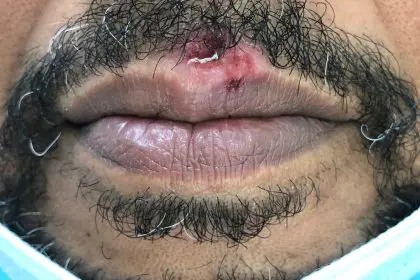In the pristine laboratories of Duke-NUS Medical School, a revolution in anxiety and mental health treatment is quietly unfolding. Scientists have discovered what might be the most unexpected ally in the fight against anxiety: the humble gut microbiome. This microscopic ecosystem, teeming with billions of bacteria, could hold the key to unlocking new treatments for one of humanity’s most pervasive mental health challenges.
The anxiety epidemic
In a world where approximately 4% of the global population grapples with anxiety disorders, traditional treatments have left many searching for alternatives. The current arsenal of medications and therapies, while effective for some, fails to provide relief for a significant portion of those affected, leaving a therapeutic void that demands innovative solutions.
The limitations of conventional wisdom
Traditional treatments have long relied on a combination of therapy and medication, with success rates hovering between 60% and 85%. These approaches, while valuable, often come with a hidden cost. Benzodiazepines can lead down a path of dependency, while SSRIs might introduce unwanted companions like weight gain and sexual dysfunction, creating a complex dance between benefit and burden.
A microscopic revelation
Enter the gut microbiome – a vast community of microorganisms that might seem far removed from the complexities of mental health. Yet, recent research has unveiled an intricate communication network between these tiny inhabitants and our brain, suggesting that the path to mental wellness might begin in our digestive system.
The germ-free experiment
In a groundbreaking study, researchers utilized germ-free mice to explore the mysterious connection between gut bacteria and anxiety. These specially bred rodents, lacking the typical microscopic residents of the digestive tract, exhibited unusually high levels of anxiety. The culprit? Hyperactivity in the basolateral amygdala, the brain’s emotional control center.
The indole innovation
The story takes an fascinating turn with the introduction of indoles – molecular messengers produced by gut bacteria from the amino acid tryptophan. When administered to the anxious germ-free mice, these compounds demonstrated remarkable potential in calming the brain’s fear response, suggesting a natural pathway to anxiety relief.
The future of anxiety treatment
This discovery opens several promising avenues for anxiety treatment:
Dietary interventions – The potential to manage anxiety through targeted dietary changes that support beneficial gut bacteria.
Probiotic therapy – Development of specific probiotic strains designed to enhance indole production.
Personalized treatment – Creation of individualized approaches based on a person’s unique gut microbiome profile.
Natural alternatives – Exploration of food-based solutions that could complement or replace traditional medications.
The science of serenity
The gut-brain axis represents a complex bidirectional communication system:
Neural pathways – Direct connections between the digestive system and brain that influence emotional responses.
Chemical messengers – Molecules produced by gut bacteria that can affect brain function and behavior.
Immune system interaction – The gut microbiome’s role in modulating inflammation and stress responses.
The dietary dimension
Understanding the gut-brain connection opens new possibilities for anxiety management through diet:
Probiotic-rich foods – Incorporating fermented foods that support beneficial gut bacteria.
Prebiotic nutrition – Consuming fiber-rich foods that feed helpful microorganisms.
Anti-inflammatory choices – Selecting foods that reduce systemic inflammation and support gut health.
The clinical horizon
As research continues, several promising developments emerge:
Biomarker identification – Discovery of specific gut-based indicators that might predict anxiety vulnerability.
Targeted interventions – Development of precise treatments based on individual gut microbiome profiles.
Preventive strategies – Creation of dietary and lifestyle approaches to prevent anxiety before it develops.
Beyond traditional treatment
This new understanding of the gut-brain connection suggests a more holistic approach to anxiety management:
Integrated care – Combining traditional treatments with gut-focused interventions.
Lifestyle modification – Emphasizing the role of diet and stress management in mental health.
Preventive measures – Implementing early interventions based on gut health indicators.
The path forward
While this research opens exciting possibilities, it represents just the beginning of a new frontier in mental health treatment. The complex interaction between gut bacteria and brain function continues to reveal new mysteries, suggesting that we’ve only scratched the surface of this therapeutic potential.
As science unravels the intricate connections between our digestive system and mental health, we move closer to a future where anxiety treatment might be as simple as maintaining a healthy gut. This promising direction offers hope for millions seeking alternatives to traditional anxiety treatments, potentially leading to more natural, personalized, and effective solutions for mental wellness.
The revelation of the gut-brain connection in anxiety treatment illustrates the remarkable complexity of human biology and the endless possibilities for innovative therapeutic approaches. As research continues, this understanding may revolutionize not only how we treat anxiety but how we think about mental health as a whole.











